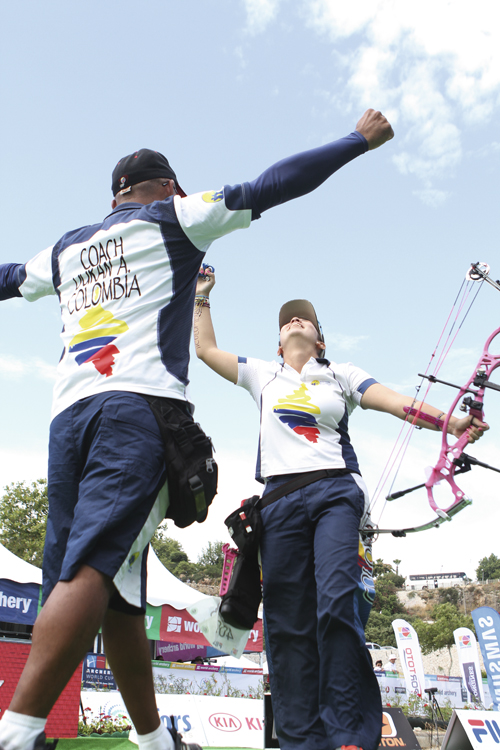Q: Given that archery is such an individual sport a lot of the time, how important is a coach in reaching the higher levels?
A: There have been a number of international competitors who have been self-educated, drawing information from other archers, and from book and magazine information, and now the internet. When these shooters make national teams they do come under the supervision of the coaching staff however, so a high percentage do have coaching influence on their progress at that point. Clearly, the quality of coaching expertise and experience is a major factor in the careers of the elite who come under coaching guidance.
A glaring example of superb coaching ability enhancing archer performance is Korean master KiSik Lee. After resounding success in his own country, he became the Australian Institute of Sport archery coach in the mid-nineties. Australia’s best archer, Simon Fairweather, had gone from early glory as a twenty-one-year-old world target champion to less-than-successful results in the years that followed. The Korean genius revamped the Aussie archer’s form and mental fortitude, culminating in the Olympic gold in Sydney a decade after his world title success. With Simon’s retirement, Mr Lee triumphed again, bringing teenager Tim Cuddihy from victory in the World Junior Championships to Olympic bronze in Athens.
His later appointment as the United States Head Coach saw promising young compounder Brady Ellison develop into a World Cup recurve champion. Very obviously, a master coach such as KiSik can have a huge influence on the development of a young shooter of potential. For the average club archer, if class coaching is not at hand, gleaning gems of wisdom from various other sources is going to be beneficial in improving form and shot process. The archer who does place his or her progress in the hands of a coach however, must be confident in that coach’s knowledge and communicative abilities, and has to be wary that they work together exclusively, and not be wide open to opinions from other well-meaning sources.
If one has this trust in a coach, then much can be learned, and the partnership can be fruitful. If the archer chooses to self-learn, perhaps because no quality coaching is readily available, then it is imperative that they settle on a comfortable, in-line form and shot process quite quickly, as obtaining a repetitive shot will not be forthcoming with constant chopping and changing. As the archer’s knowledge grows, minor adjustments, which have proven positive in practice, can mould that basic form into possible upper elechon scoring. In summary, quality coaching can certainly turn a promising talent into an elite competitor, but is it crucial to reach a high degree of performance? Not necessarily, as our sport continues to unveil new young champions with self-learned skills and shooting idiosyncrasies, which, nonetheless, manifest in world-class scoring.
Roy Rose


